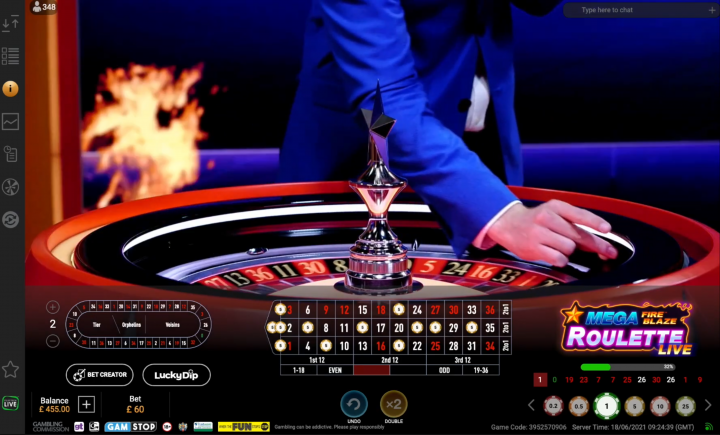RNG - Casino Random Number Generator
Casino games of all kinds are ultimately a shot at luck. You can look at statistics and try to gauge your winning chances, but you might often be caught by surprise. Land-based casinos work mainly on luck when the cards are shuffled, or the dice are rolled. You can try your strategies, but you will not be able to predict the game of chance. However, online casinos use a technology that adds some coherence to gambling. RNG, also known as Random Number Generation, is a process that upholds fair play and transparency, and ensures an unbiased playing experience. If you want to learn everything there is to know about RNG in online gambling, keep on reading to find out!
Defining RNG and its Role in Online Gambling

An RNG, or a casino Random Number Generator, follows an algorithm that produces a randomly generated number that cannot be predicted otherwise. Online casinos use this tool to determine the outcomes of their games. Because the numbers are generated at random by a machine, this process eliminates the possibility of a game being rigged or fixed, which is something that casinos are often accused of.
Random Number Generators are used in slot machines across online as well as brick-and-mortar casinos. However, online casinos also use RNGs for other games, such as roulette, blackjack, bingo, and poker. The application differs slightly from game to game, but the basic premise is the same. These RNGs aim to ensure a fair playing experience for all the players involved, so no one has to worry about losing unfairly or playing an unjustly biased game.
The reason RNGs have grown to become so popular in the online casino community is that there is no way to beat them. Different RNG mechanisms might work in various ways, but they all manage to provide a random outcome that cannot be reasonably predicted by someone else. This is why the RNG algorithm is considered one of the foundations of a trustworthy game.
Random Number Generators vs. Luck
.jpg)
Many people consider RNG as just a modern format of ‘luck,’ and they’re not that wrong. Technically, the outcomes are still based on chance and cannot be predicted. Some experts are of the opinion that there is a mechanism behind the working of these RNG algorithms, so they cannot be classified entirely as random.
Another thing to be taken into consideration is that there are various types of RNGs, each working in a different way. So, while there may or may not be a definitional difference between luck and RNG, the aim of the technology is not to bring good luck, but rather to ensure that all players receive an equal shot at the game.
A Random Number Generator vs. Return-to-Player Percentage (RTP)

Some people might confuse RNG with the RTP of online casino games, but these two things are not the same. RTP refers to how much of a bet the player can expect to win in the long run; it does not give any information regarding the possibility of winning. For example, if a game has an RTP of 97%, the player can expect to win back 97% of the total amount they bet.
Before an RNG algorithm is programmed to a specific game, it is provided this RTP value. The algorithm uses this value as a guide to the outcomes it is allowed to put out so that the winnings comply with the RTP over a bunch of gaming sessions. The two concepts work together in harmony but refer to entirely different things.
How Do Random Number Generators Work in Online Casino Games?

Whenever you encounter an RNG game, it can use one of two kinds of this algorithm. It can either be based on a Hardware Random Number Generator, also called a True Random Number Generator, or it can be a Pseudo Random Number Generator. The end goal of both is to give out numbers at random, but they both work in entirely separate ways.
Hardware Random Number Generator (HRNG): This type of RNG is a physical device working on a mechanical process that picks up information from the environment. Any kind of information can be used to drive the algorithm, including air temperature or the number of times a player presses the button. This information is processed by the HRNG and converted into random values, which are then given out. Because there is no way to predict these values, no one can accurately guess which number the HRNG will put out.
Pseudo Random Number Generators (PRNG): A PRNG is a software algorithm produced on a mathematical formula, which uses a given value to generate a number. This given value is known as the seed, and it defines which values the RNG can provide as an outcome.
The resulting value of the PRNG is often not expressed in the form of a number. For example, it might correspond with a particular image tile in an online slot. There is a slightly more systematic process for these types of RNGs, which is why many people think they can be predicted. However, even if you theoretically knew the seed as well as the formula, it would practically be almost impossible to accurately calculate the result that the RNG will give out.
Random Number Generators vs. Live Dealer Games

The presence of a live dealer used to be one of the biggest things that differentiated an online casino from a land-based gambling site; however, that is not the case today. Online casinos have now emerged with their own variants of live dealer games, featuring actual individuals who work the wheels in a table game, the same way a dealer in a brick-and-mortar casino would.
The primary purpose behind this innovation is to bring the social feel of a casino right to people’s personal screens. If you feel like gambling with an actual person but don’t want to step out of your home, an online live dealer game solves this problem for you. But what’s the difference between a live dealer game and a game that uses an RNG?
The main difference occurs in the mechanism and the way these games run. An RNG is used in all games where the outcome depends on chance. This includes online slots, but also a ton of other casino games like bingo and blackjack. However, if the blackjack was instead run by a live dealer, the result wouldn’t depend solely on chance. This is because, in that scenario, you would also have to consider other factors, such as a dealer’s unique way of shuffling or dealing.
In a nutshell, an RNG game is entirely dependent on an algorithm, whereas a live dealer game is not. While the latter does offer the authentic experience one would find in an actual casino, it does come with a slight drawback. The dealer might not even be doing this intentionally, but most dealers do have a particular way of spinning wheels or shuffling cards, which prevents the outcome from being entirely random.
Thus, bettors have to decide whether they value randomness above everything else. If you want that accurate casino feel from the comfort of your home, you might have to let go of the randomness formula a bit.
How are Random Number Generators Kept Fair?
If the entire point of having an RNG algorithm is to uphold fairness, how do the best online casinos decide whether a game provider actually uses an accurate RNG? Simply put, iGaming providers are certified by third-party companies for their RNGs, which also check their games in action to determine whether they actually output random numbers.
There is something known as an RNG audit, which all certified RNG games go through. This process is essential because bettors need to be guaranteed that their hard-earned money will go to a fair game. After all, no one wants to lose their money betting on a game that was biased to begin with.
Some casino game providers, like BGaming, will also allow bettors to manually check the RNG algorithm through a technical but simple process. These measures are implemented to ensure that no one is exploiting the RNG name to produce something that isn’t as random as it claims to be.
RNG Certification
Now that we know how RNGs are upheld to fairness levels, let’s take a look at how this certification actually works. Here are some of the top certification agencies that vet these games by online gaming providers:
- eCOGRA (eCommerce Online Gaming Regulation and Assurance): A London-based agency, eCOGRA’s main responsibility is to guarantee fair games to online gamblers while also upholding player rights. The agency hires technical experts who inspect a provider’s gambling software and games in detail. This allows them to ensure that all RNG games comply with the standards expected of this algorithm. Once the provider’s RNG audit clears, they’re offered an eCOGRA certificate. This is one of the most reputable licensing and vetting agencies in the world of online gambling, so providers with an eCOGRA certificate will always display this accomplishment of theirs.
- iTech Labs: This is another leading agency that certifies online gambling systems. Companies based in Asia, the Americas, and Europe can get accreditation through iTech Labs. Since the agency operates in different locations, it always ensures that a gaming provider complies with the unique gambling regulations of the region it is working in. In its first stage, the expert team from iTech evaluates a system’s code for vulnerabilities. After this, the system is put through two rigorous testing phases to check it out in practice.
- Gaming Labs International: Gaming Labs International has a global presence, which is why its certificates are accepted and regarded in gambling markets around the globe. The company offers an RNG certification after putting gambling systems through a robust check, including testing the code and running technical systems testing to ensure the outcome works appropriately.
- BMM Testlabs: This independent laboratory has been certifying games for over three decades, giving it its reputable position in the gambling industry. In order to certify a game, the agency first does preliminary testing, followed by quarterly verifications. The certificate is only offered after experts have conducted a range of audits to ensure that the gaming content meets compliance standards.
Having at least one certification is essential for a gaming provider to prove that it is actually capable of supplying RNG games. Many reputable providers get multiple certifications, which further strengthens their standing. Before you choose to play any online casino games, do your due diligence to ensure that they comply with the required standards and try a free play version to gauge the mechanics.
RNG Casinos Strengths and Weaknesses
💪 Strengths ⚠️ Weaknesses Transparent gameplay Have to trust the software Games are easy to find Gameplay might be less immersive than live dealer games The gameplay is quick Multiple licensing authorities
Final Thoughts
All in all, there’s a reason that RNG algorithms are now considered the gold standard of compliance when it comes to online games. Technological tools like these allow gaming providers to offer a wide range of fair and unbiased games, which would be impossible if all games relied on an actual dealer. Whether a game uses an HRNG or a PRNG, the presence of the algorithm ensures that it results in a just outcome.







